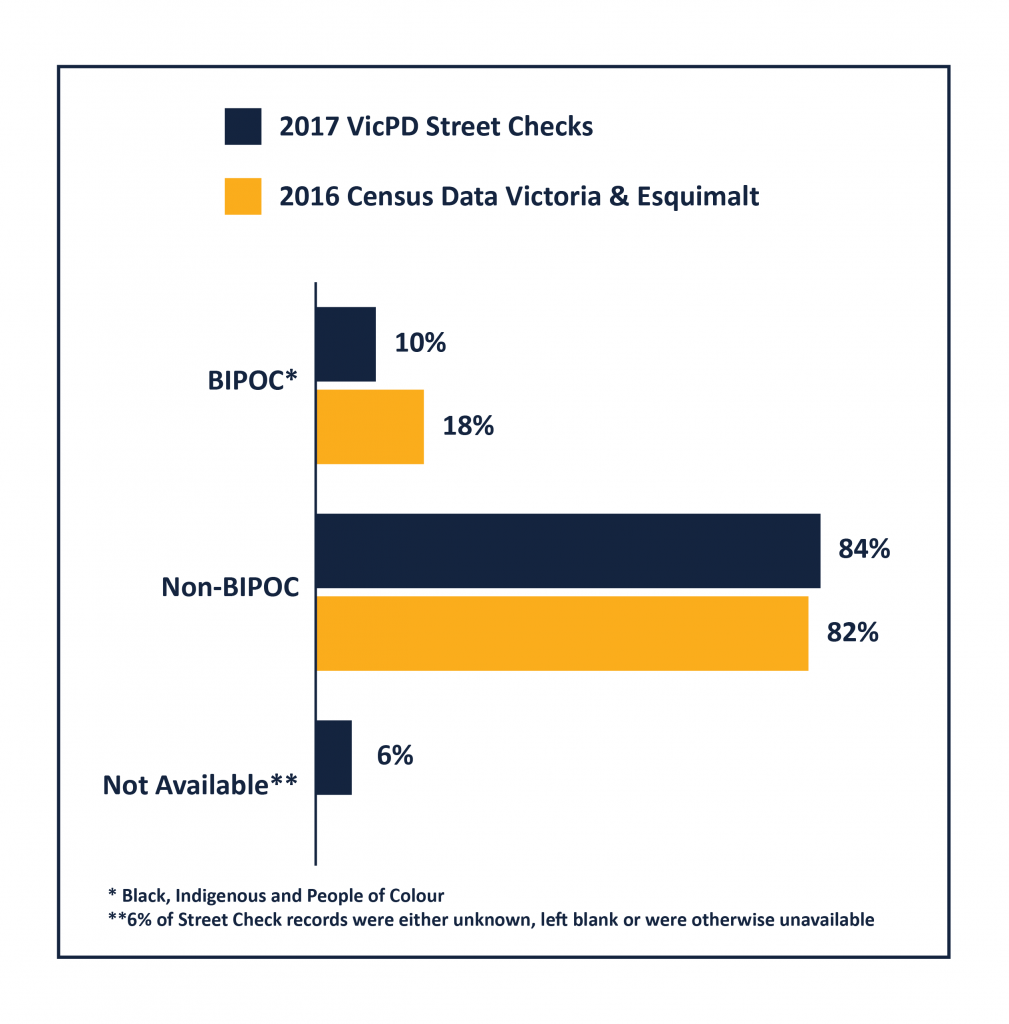As the Chief Constable of the Victoria Police Department, I have the responsibility to keep our communities safe while maintaining the public’s trust and confidence.
I’ve seen many inaccurate reports and misinformation being shared and discussed regarding street checks so I want to provide some clarity. I first want to acknowledge the overrepresentation of racialized individuals in many aspects of society, including the criminal justice system. For this reason, it is critical that police services continue to recognize the potential for bias and take steps to ensure police services are delivered bias-free.
With regard to street checks, I can tell you that VicPD does not support random or arbitrary stops of any kind. I do, however, support officers initiating conversations with individuals in the community where there is a reasonable and unbiased reason to do so.
I can say with certainty that our communities expect all police–public interactions to be conducted without bias or discrimination. That is something I truly believe in and this vital principle is reflected in VicPD’s street check statistics. When we analyzed our street check data from 2017, we found that 10% of the people who were checked were Black, Indigenous, and People of Colour. According to the most recent Statistics Canada census data, Black, Indigenous, and People of Colour represent 18% of the population of VicPD’s jurisdiction of Victoria and Esquimalt.
VicPD conducts street checks in the course of our duties and we expect that they are conducted within a police officer’s common law duties and are supported by law. These interactions most often begin with a conversation when a police officer views unusual, suspicious, or potentially criminal behaviour. VicPD does not support the practice of “carding” which, according to Justice Michael Tulloch, in his 2018 Report of the Independent Street Checks Review, defined as “situations in which a police officer randomly asks an individual to provide identifying information when there is no objectively suspicious activity, the individual is not suspected of any offence and there is no reason to believe that the individual has any information on any offence.”
The police have a legal obligation to preserve peace, prevent crime, and keep citizens safe. The Supreme Court of Canada has confirmed that an important function of the police is to stop and talk to individuals. However, we must carry out our duties in accordance with the Canadian Charter of Rights and Freedoms and all laws, including the Police Act. We take guidance on our practices from the courts and government though regulatory standards. Moving forward, we will continue to examine our practices as an organization to ensure that fair, impartial and accountable policing is the result.
Crime prevention is essential to the maintenance of public safety and the police must have proper tools to undertake this work. If our officers see suspicious situations, potential criminal activity, or any other potential issue related to public safety, I believe our communities expect officers to make inquiries.
Police officers have a very challenging and difficult job and are routinely confronted with complex issues and circumstances that they must manage in short order without the benefit of hindsight. I am continually amazed at the level of professionalism of our police officers and the empathy, compassion and kindness they bring to their profession.
The topic of street checks is one that I look forward to discussing with our communities as we strive to provide the best possible police service to our communities.

